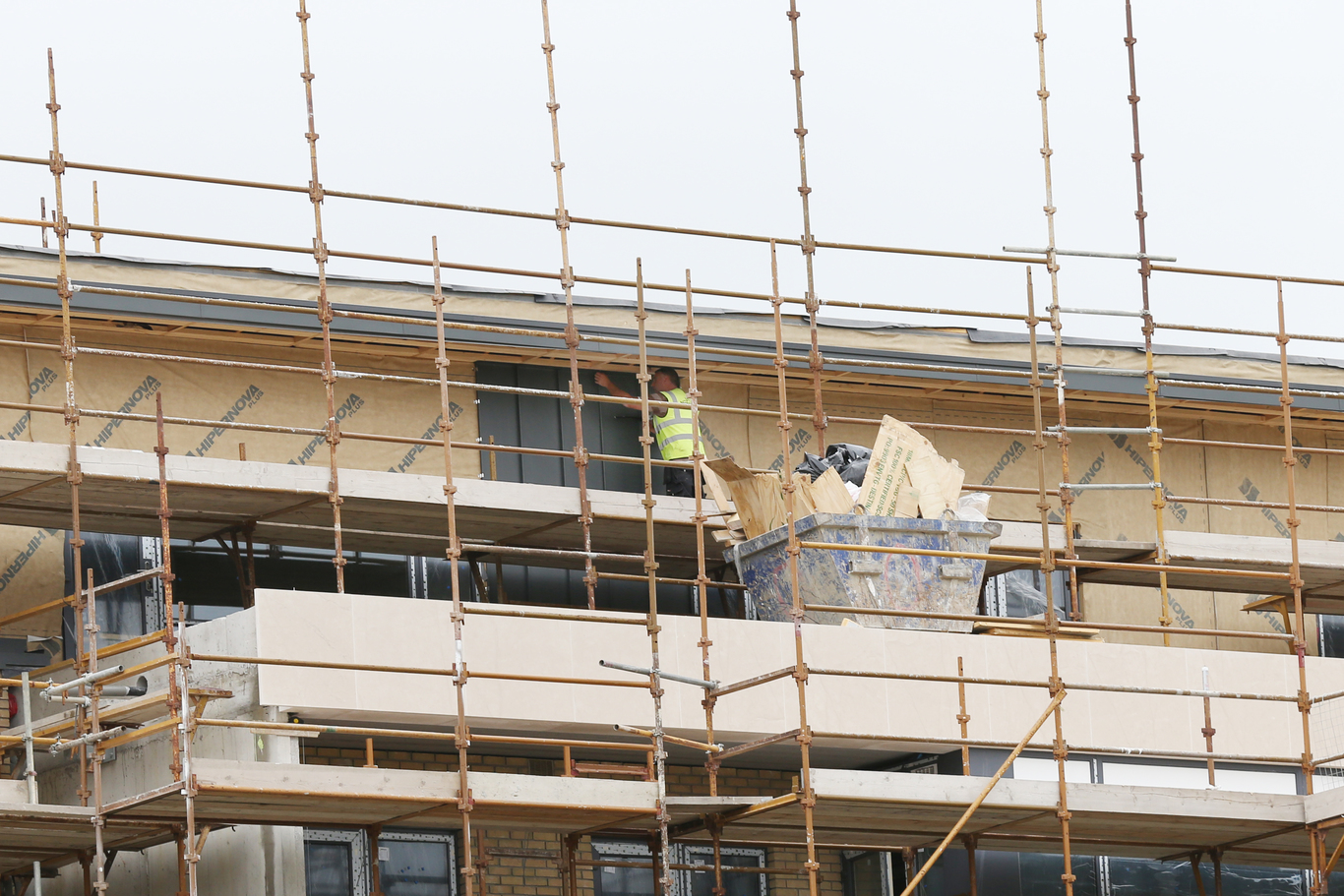How to fix one of the biggest obstacles to getting more building projects off the ground
Access to finance is holding back many construction firms in Ireland – especially the smaller players.
IT’S RARE THESE days to open a newspaper or listen to a news bulletin without some commentary on the housing crisis or the lack of adequate office space for companies fleeing a post-Brexit UK.
All indicators point to a need for greater preparedness on many levels if Ireland and its recovering economy are to weather the storm.
‘Construction Sector Access to Finance’, a new report commissioned by RSM and the Construction Industry Federation (CIF), can make for grim reading.
The report found an unusually low level of engagement with lenders, mainly based on negative past experiences.
Some 63% of construction companies that sought to borrow from financial institutions during the past year reported difficulties in securing finance, while during the same period only one-third of those involved in house building have successfully obtained bank finance.
The challenges appear greater for small- to medium-sized companies with a turnover of under €9 million.
Many respondents cited previous problems in securing finance as the basis for their apathy and disengagement from institutional lenders as well as private equity options.
This has had a serious and negative effect on these companies’ future developments. Particularly for smaller enterprises, a lack of liquidity hampers their ability to grow, tender for projects, recruit new staff and generally increase their capacity for new developments.
The absence of sufficient credit means many firms have to rely on cash reserves to set projects in motion, an option that is not always readily available to smaller companies.
An impediment to the market
Given the huge number of reliable and high-quality construction firms ready to scale immediately given the opportunity, a lack of finance is becoming a major impediment to the normalisation of the housing market.
A Cork-based SME reported the following, on the basis of anonymity: “If we had the finance available that we need then there are three sites we would be in a position to develop and we could be up to developing a 100 houses a year within 18 months.
“This would be a sustainable number of houses for us to build for the next number of years. The market clearly needs this housing stock as inadequate supply is inflating house prices. But the truth is we cannot get access to funding for land development.”
There is evidence that access to finance is unevenly distributed in terms of location and site designation. A consistent theme that emerged was the regional and economic disparity evident in the current real estate landscape.
A number of respondents based outside of Dublin held the view that financial institutions prioritise the capital as the prime area for development as prices have recovered more favourably.
Added to this, developers outside Dublin noted a further disadvantage for those seeking to develop housing. Several reported that financial institutions have very limited interest in lending for any development or refurbishment projects other than commercial units.
In the context of a housing crisis, it becomes increasingly evident that the practices and preferences of lenders are exacerbating the situation.
A state role
Many respondents in the report felt that the state does not currently play any substantial role in improving access to finance, and some argued that measures could be taken at governmental level in terms of accountability of financial institutions.
A strong and vibrant construction sector is a critical component in the recovery of the Irish economy. Currently, the construction sector accounts for approximately 6% of GDP, which is below the 10–12% share it holds in most EU countries.
This is not a call for a return to speculative meaning of the past. The need for robust guidelines around credit for all businesses is clear.
However, given the growing need and demand for construction across the country, this survey indicates that the dial may have gone too far in the other direction.
Having to rely on cash reserves to fund business on an ongoing basis is not considered a sustainable model for a growth industry.
To support better access to finance and in order to drive growth in the sector, a number of measures could be introduced in Budget 2018, including the establishment of a small builder’s fund which would provide finance, at market rates, for viable projects where traditional sources are unwilling to lend.
This type of fund would be akin to the UK ‘Home Building Fund’, which could certainly work as a template for the Irish situation. The UK fund is government backed and administered by a government agency.
In this type of scenario, the fund would provide development finance loan funding to meet the development costs of building homes for sale or rent as well as infrastructure funding for site preparation and to enable housing project to progress.
Such a fund could be targeted at SMEs and designed to encourage innovation, both in the kind of homes that are built and the way in which they are delivered.
As it stands, competent companies are unable to secure finance to invest in their businesses despite large demand for quality housing.
This has the potential to stymie ambition, growth and employment in the industry in the medium-term as companies will not be able to expand and gear up to meet demand.
It’s clear that there is no silver bullet that will resolve this complex issue, but unless we get finance flowing to our builders, we are going to hit bottlenecks elsewhere in our economy and we will continue to read stories of families and communities in crisis.
Paddy O’Connell is construction director at RSM.
If you want to share your opinion, advice or story, email opinion@fora.ie.






